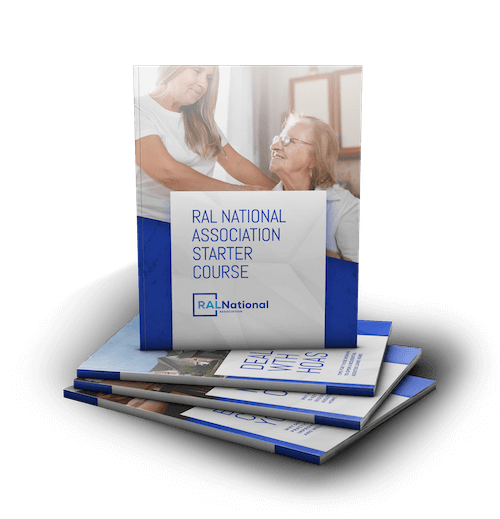Falls can lead to life-altering disasters for older adults, especially when they are on various medications.
According to experts like a foot doctor, that might seem to many as a slip of the foot can be a crippling event for an older adult. It can aggravate morbidity and hasten mortality. Therefore, it is advised that seniors who sustained foot injuries seek help from a podiatrist immediately or look into therapies such as dry needling therapy.
The National Council on Aging suggests that 25% of Americans over 65 experience some sort of fall each year.
For seniors, preventing falls is a top priority as a fall can drastically change the life of a senior and their caregivers.
The cause of most falls amongst seniors is loss of balance or strength. However, this is not entirely true.
The unsupervised use of medication is one of the leading causes of falls in seniors is medication usage.
Many commonly prescribed medications and over-the-counter medications cause conditions within seniors that lend to falls.
MEDICATIONS THAT CAN CAUSE FALLS
Many drugs affect the central nervous system. However, in a senior, this impact can be exacerbated.
Many of these drugs may astound you as harmless, but the fact remains that they have a more substantial effect on seniors than younger people.
Below find a list of drugs that may shock you as profound fall risks for seniors.
- Antithrombotic agents (antiplatelet and anticoagulant drugs used to prevent blood clots)
- Medications used to treat peptic ulcers and gastroesophageal reflux disease (GERD)
- High ceiling diuretics (like furosemide)
- NSAIDs
- Vitamin B12 and folic acid supplements
- Constipation drugs
- Calcium supplements
- Hypnotics and sedatives
- Analgesics and antipyretics
- Opioids
- Antidepressants
It might well be that knowledge is power, but in this case is safety. However, many medications cause side effects upon the nervous system that do not necessarily result amongst healthy individuals.
The Residential Assisted Living National Association is not suggesting that these medications result in falls in the general population but solely examine seniors’ risk.
THE CONNECTION BETWEEN POLYPHARMACY AND FALLS
What is polypharmacy? How does it contribute to falls in seniors? Why are falls so detrimental to the vibrancy of a senior?
Polypharmacy is multiple medications used at the same time. Polypharmacy is what many physicians use to manage numerous morbidities concomitantly.
The trouble with polypharmacy is the effect it can have on seniors.
On the one hand, a physician must get severe medical conditions under control. On the other hand, the same physician must make sure the medications do not pose a more severe threat to the senior than the conditions themselves.
Nearly 67% of Americans over 65 years of age take three or more medications daily. Over 35% of Americans that are over the age of 65 take five or more medications daily.
Polypharmacy is a problematic situation that often results in unwanted falls in seniors. Falls are associated with enhanced morbidity and even mortality.
How does this happen?
HOW SENIORS END UP ON EXCESSIVE MEDICATIONS
Here is a simple example of how seniors can end up taking excessive medications:
Sometimes, seniors report specific symptoms to their physicians.
The physicians prescribe medication to alleviate those symptoms and handle a disease or disorder acutely.
Then, the same senior visits another doctor, typically a specialist, and complaints of particular symptoms.
What’s the problem?
The symptoms the senior complains of to the specialist are side effects of medication prescribed by the first physician.
The specialist then prescribes a medication to alleviate the symptoms, which are side effects.
Unfortunately, before one grasps the gravity of this senior’s situation, the senior is taking more than four medications.
While unintentional, the effects of polypharmacy is a growing cause of falls in seniors. Seniors must have internal medicine physicians who focus on geriatrics.
These physicians are familiar with the nature of disease and disorders in seniors.
They make it one of their aims to significantly reduce medication intake to ensure the fewest medications in their geriatric patients.
WEIGHING THE RISKS AND BENEFITS OF MEDICATIONS
Minimizing the inherent health risk posed by disease with the risk of a fall caused by medication is a severe undertaking.
For example, the commonly used drug used to prevent dangerous blood clots may create a fall risk by default of its efficacy.
Unaddressed clotting can lead to heart attacks or strokes.
Treating the condition with medication that alleviates the risk of stroke or heart attack may cause the same patient to fall, resulting in a life-altering situation.
Therefore, good geriatricians know how to manage these quandaries. However, it is no easy feat.
Often, geriatricians will use drugs that have a fall risk, but for a short time only.
At other times, many will alter the drugs or help families assess the senior’s conditions and determine needs – this prevents falls and other underlying conditions.
SEEK A BROWN BAG CHECK-UP
The problem of falls caused by polypharmacy is the problem of the entire medical community.
From physicians to nurses and pharmacists, checks and balances need to be put in place to protect seniors from the dangers of polypharmacy.
Many communities around the country have done just that. They call it “The Brown Bag Check-Up.”
Have you ever seen seniors in the doctor’s office?
They often bring a brown paper bag with their medications in it – this prevents them from having to remember all sorts of ancillary but essential information about each medication they are taking.
Information such as:
- When was the medication prescribed?
- Why was it prescribed?
- For how long was it prescribed?
- What strength is the drug?
- How often is it to be taken each day?
That is tedious information for younger Americans to recall, let alone a senior who may or may not be living alone.
These paper bags are taken to the pharmacy as well to ensure duplications are not occurring.
While information technology is an excellent mitigator of polypharmacy, you would be shocked at what seniors may have in their cupboards at home.
Seniors, many of whom are furious defenders of their independence, can use these questions to help drive the conversation about their medications:
- Why am I being prescribed this medication?
- What is the length of time for taking medication?
- Is there something I can do with my diet that will help me with my condition?
- What are the side effects that pose concerns?
IDENTIFYING THE COMMON MEDICATIONS THAT CAUSE FALLS
The use of medication is inevitable for many Americans, especially amongst seniors. However, caregivers should closely monitor seniors who are using the medicine.
The Residential Assisted Living National Association has created a top 10 list of medications that affect seniors.
This list does not strike fear, instead, it raises awareness among caregivers and seniors to ensure they remain safe and receive quality care while dealing with disease and disorders.
1. Benzodiazepines. These medications benefit seniors with sleep and anxiety. However, they can be addictive and can lead to cognitive impairment, too. Common benzodiazepines include:
- Lorazepam
- Diazepam
- Temazepam
- Alprazolam
2. Non-benzodiazepine prescription sedatives. Similar to those mentioned above, these drugs help treat sleep conditions, too.
- Zolpidem
- Zaleplon
- Eszopiclone
3. Antipsychotics. These medications help with schizophrenia and other psychotic illnesses. However, more recently, they’ve been expanded to help with psychosis in dementia and profound depression. The latter considered, second generation antipsychotics,” include:
- Risperdal
- Seroquel
- Zyprexa
- Abilify
- Haloperidol, a first generation antipsychotic, is at times still used.
4. Anticonvulsants/Mood-stabilizers. These drugs are anticonvulsants or seizure medications. Highly effective in treating bipolar disorders, they have also shown efficacy in dementia-related behaviors and nerve pain.
- Depakote
- Neurontin
5. Antidepressants. These medications treat depression and anxiety.
- SSRIs (Selective Serotonin-Reuptake Inhibitors are very common and include:
- Zoloft
- Celexa
- Lexapro
- Paxil
- Prozac
- Other antidepressants include:
- Wellbutrin
- Effexor
- Remeron
- Tricyclics are used for depression less and nerve pain more often.
- Amitriptyline
- Nortriptyline
- Trazodone is a much older antidepressant and is now used almost exclusively as a sleep aid for less severe cases.
6. Opioids are most frequently used to treat pain and have recently become the bane of national existence. Highly addictive, these drugs are effective but can also be incredibly risky for seniors.
- Codeine
- Hydrocodone
- Oxycodone
- Morphine
- Fentanyl
- Methadone
7. Anticholinergics. This group covers most over-the-counter sleep aids, as well as a variety of other prescription drugs. They are anticholinergics.
- Benadryl
- Nyquil – PM, Tylenol – PM
- Overactive bladder medications: Tolterodine and Oxybutynin
- Vertigo medications: Meclizine, Scopolamine, Promethazine
- Anti-itching medications: Benadryl, Vistaril
- Muscle relaxants: Cyclobenzaprine
- Tricyclics, which are antidepressants also: Paxil
8. Blood Pressure Medications can also have significant fall risks associated with them. While many classes of medications exist, some are more likely to cause falls than others.
9. There are specific medications that cause seniors to fall, particularly amongst older men, such as:
- Flomax
- Hytrin
- Cardura
- Minipress
10. Medications for diabetes are hazardous in terms of falls because of variances in blood chemistry. In other words, sudden drops in blood sugar can occur in diabetic patients who have uncontrolled diabetes. Those sudden drops in blood sugar cause dizziness and can result in a fall.
All of the above have been associated with an increased risk of falls in seniors. Your senior must be under strict medical care when taking these medications. Again, the lowest possible dose for the shortest amount of time is ideal for overall optimal care.
While treating disease and disorders is a necessary practice for seniors’ health, the prevention of falls is just as critical.
Be sure that seniors are under the care of a watchful geriatrician – this will prevent unwanted falls and fractures.
Quality care prevents other diseases and disorders.
GETTING THE SUPPORT NEEDED TO PROVIDE QUALITY ASSISTED LIVING CARE
The Residential Assisted Living National Association is committed to helping assisted living homes nationwide provide quality senior care.
Membership is free, which includes access to blogs, newsletters, discount group purchasing, and legal support. Become a member today.
For more information, please visit the RALNA website for additional support.











